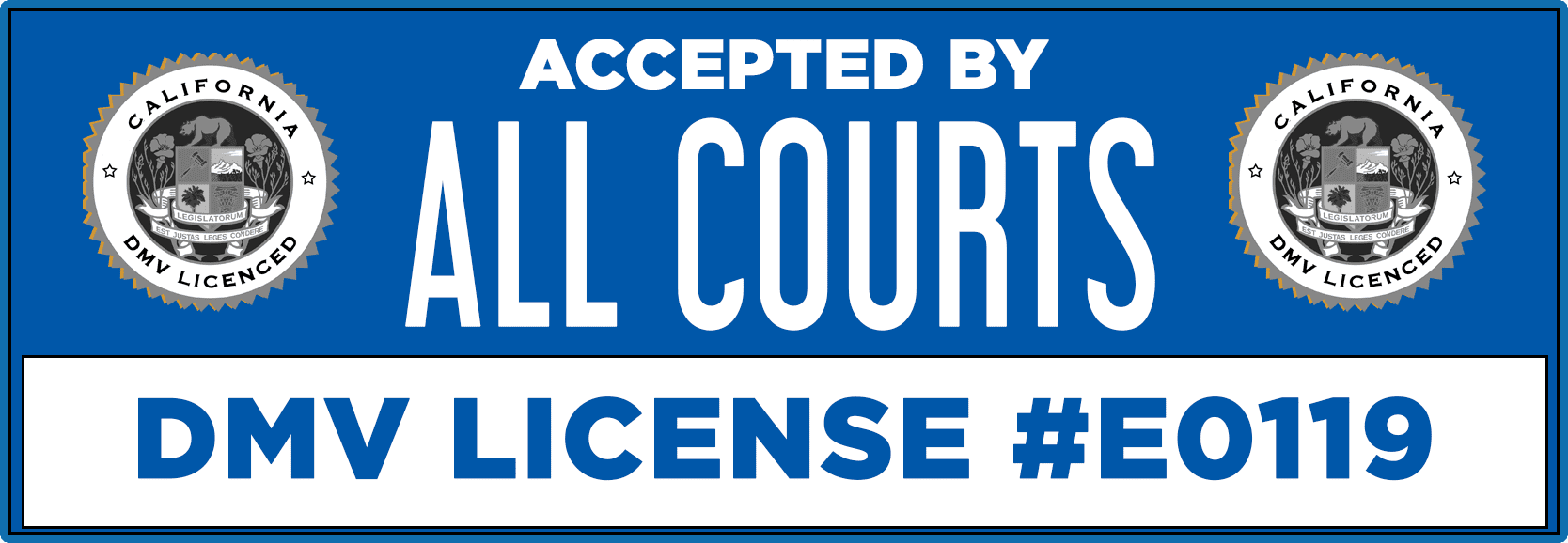Your driving record is more than just a collection of your driving history—it’s a document that can have significant implications for your insurance premiums, employment opportunities, and even your privacy. So, is your driving record public information? The answer is both yes and no.
While certain details of your driving record are accessible to specific entities like insurance companies, employers, and legal professionals, not all information is available to the general public. Sensitive details such as your physical or mental condition are typically protected and only accessible by the DMV, courts, or law enforcement agencies.
Understanding what information is on your driving record and who can access it is crucial in protecting your privacy and driving privileges.
In this article, we’ll dive deeper into who can access your driving record, the types of information it contains, and how you can manage and protect this important document.
We’ll also cover your driving record’s impact on various aspects of your life, how to request a copy, and what steps you can take if you find errors. Whether you’re concerned about privacy, insurance rates, or employment, this guide will equip you with the knowledge you need to navigate the complexities of driving records.
Now, let’s explore each of these aspects in detail to understand your driving record’s public nature comprehensively.
Who Can Access Your Driving Record?
Your driving record is not just a personal document; it’s accessible by various entities for different reasons.
Insurance Companies
One of the most common entities that access your driving record is your insurance company. They use this information to evaluate risk and determine your insurance premiums. A history of traffic violations or accidents can lead to higher premiums, as insurers view drivers with these records as higher-risk clients. In contrast, a clean driving record can lower rates and discount eligibility.
Employers
For specific jobs, especially those involving vehicle operating, employers have a legitimate interest in reviewing your driving record. This is particularly true for positions such as truck drivers, delivery drivers, or any role that requires driving as part of the job. Employers check driving records to ensure that potential hires do not pose a risk on the road and to verify that they have a valid license.
Legal Professionals
Attorneys may access driving records when representing clients in traffic-related cases or personal injury claims. A driving record can provide crucial evidence in a case, such as showing a history of reckless driving or demonstrating that a client has a clean driving history.
How to Request Your Driving Record
Obtaining a copy of your driving record is relatively straightforward, but the process can vary depending on your state.
Process Overview
To request your driving record, you typically need to submit a formal request to your state’s Department of Motor Vehicles (DMV). This can be done online, by mail, or in person. You must provide personal information such as your full name, date of birth, and driver’s license number. Additionally, you may be required to state the purpose of your request.
Online vs. In-Person Requests
Many DMVs offer an online portal where you can request your driving record for a nominal fee. This is often the fastest and most convenient method. Alternatively, you can visit a DMV office in person or send a request by mail. In-person requests may allow you to obtain your record on the same day, while mail requests can take several weeks to process.
Costs and Fees
The cost of obtaining your driving record varies by state but ranges from $5 to $20. Some states may charge additional fees if you request a certified copy. It’s important to check your state’s DMV website for the most accurate and up-to-date fee schedule.
Types of Information Included in a Driving Record
A driving record contains a wealth of information about your driving history. Here’s what you can typically expect to find:
Personal Information
Your driving record includes basic personal details such as your full name, date of birth, and address. It also includes your driver’s license number, the type of license you hold (e.g., commercial, non-commercial), and your license status (valid, suspended, revoked).
Driving History
This section details your driving history, including traffic violations, accidents, or suspensions. Minor infractions like speeding tickets are usually kept on your record for three years, while more severe violations such as DUIs may remain for up to 10 years or longer, depending on state laws.
Points System
Many states use a points system to track traffic violations. Points are added to your record for infractions, and accumulating too many points can lead to penalties such as higher insurance premiums, license suspension, or mandatory traffic school. Understanding how the points system works in your state can help you avoid these consequences.
Privacy Concerns and Data Protection
While your driving record contains sensitive information, there are laws in place to protect your privacy.
Laws Governing Access: The Driver’s Privacy Protection Act (DPPA) is a federal law restricting access to personal information in driving records. The DPPA limits who can access your record and for what purposes, such as for use by government agencies, insurers, and employers. Unauthorized access or misuse of this information can lead to significant legal penalties.
How to Protect Your Information: To safeguard your driving record, be mindful of who you share your personal information with. If you suspect unauthorized access, you can request a copy of your driving record to review any discrepancies. Additionally, consider enrolling in a driving record monitoring service, which can alert you to any changes or requests made to your record.
Impact of Driving Records on Insurance and Employment
Your driving record has a significant impact on both your insurance rates and employment opportunities.
Insurance Premiums: Insurance companies regularly review your driving record when determining your premiums. A clean record can result in lower rates, while a history of violations can lead to higher costs. Some insurers offer accident forgiveness programs or discounts for completing defensive driving courses, which can help mitigate the impact of past infractions on your insurance rates.
Employment Opportunities: For jobs that require driving, such as delivery drivers or commercial truck operators, employers often review driving records during the hiring process. A poor driving record can limit your job prospects in these fields. If your record is less than perfect, you can improve your chances by attending traffic school, avoiding further violations, and considering expungement for eligible offenses.
Disputing Errors on Your Driving Record
Errors on your driving record can have serious consequences, but they can be corrected if you know the proper steps.
Identifying Errors: Common errors on driving records include incorrect personal information, inaccuracies in traffic violation details, or points being added for violations that did not occur. Regularly reviewing your driving record can help you catch these errors before they cause problems.
How to Correct Mistakes: If you find an error on your driving record, contact your state’s DMV to initiate a dispute. You may need to provide documentation, such as court records or a police report, to support your claim. The DMV will investigate the issue and make corrections if necessary. Following up until the error is resolved is important, as an incorrect driving record can affect your insurance rates and employment opportunities.
Expungement and Record Sealing
In some cases, you may be eligible to have certain violations removed from your driving record through expungement or sealing.
Eligibility for Expungement: Expungement removes a violation from your driving record, making it like the offense never occurred. Eligibility for expungement varies by state and is typically limited to minor violations. More serious offenses, such as DUIs, are usually not eligible for expungement.
How to Apply: To apply for expungement, you must submit a petition to the court or DMV, depending on your state’s process. The petition usually requires a filing fee and documentation proving that you’ve met the eligibility criteria, such as completing a traffic school program or maintaining a clean record for a certain period. If granted, the expunged violation will be removed from your record, giving you a fresh start.
Driving Record Monitoring Services
Monitoring your driving record proactively can help you stay on top of any changes and prevent issues from escalating.
What They Are: Driving record monitoring services track your record and notify you of any changes, such as new violations, points added, or license status updates. These services are beneficial for drivers who want to ensure their records are accurate and free of unauthorized changes.
Benefits: By enrolling in a driving record monitoring service, you can quickly address issues, such as disputing errors or new violations before they impact your insurance rates or employment. These services also provide peace of mind, knowing that your driving record is being watched for any changes that could affect your driving privileges.
Traffic School and Your Driving Record
Attending traffic school can effectively maintain a clean driving record and keep insurance rates low.
How Traffic School Helps: Completing a traffic school program can prevent points from being added to your driving record after a minor traffic violation. Many states allow drivers to take traffic school once every 18 months to mask points. Doing so can avoid the negative consequences of having points on your record, such as increased insurance premiums.
Eligibility Criteria: Not all drivers are eligible for traffic school. The nature of the violation usually determines eligibility and whether you’ve attended traffic school in the recent past. Most states allow drivers to attend traffic school for minor infractions like speeding tickets, but more serious offenses may disqualify you from participating.
Understanding and Managing Your Driving Record
Your driving record plays a significant role in insurance premiums and job opportunities. While certain details are accessible to specific entities, knowing who can view your record and how it can impact you is crucial. By staying informed, you can protect your privacy, ensure the accuracy of your record, and take steps like attending traffic school or disputing errors to maintain a clean history.
Ultimately, your driving record isn’t just a reflection of your past; it can influence your future. With the insights from this article, you’re now better prepared to manage and protect this vital aspect of your driving life.





